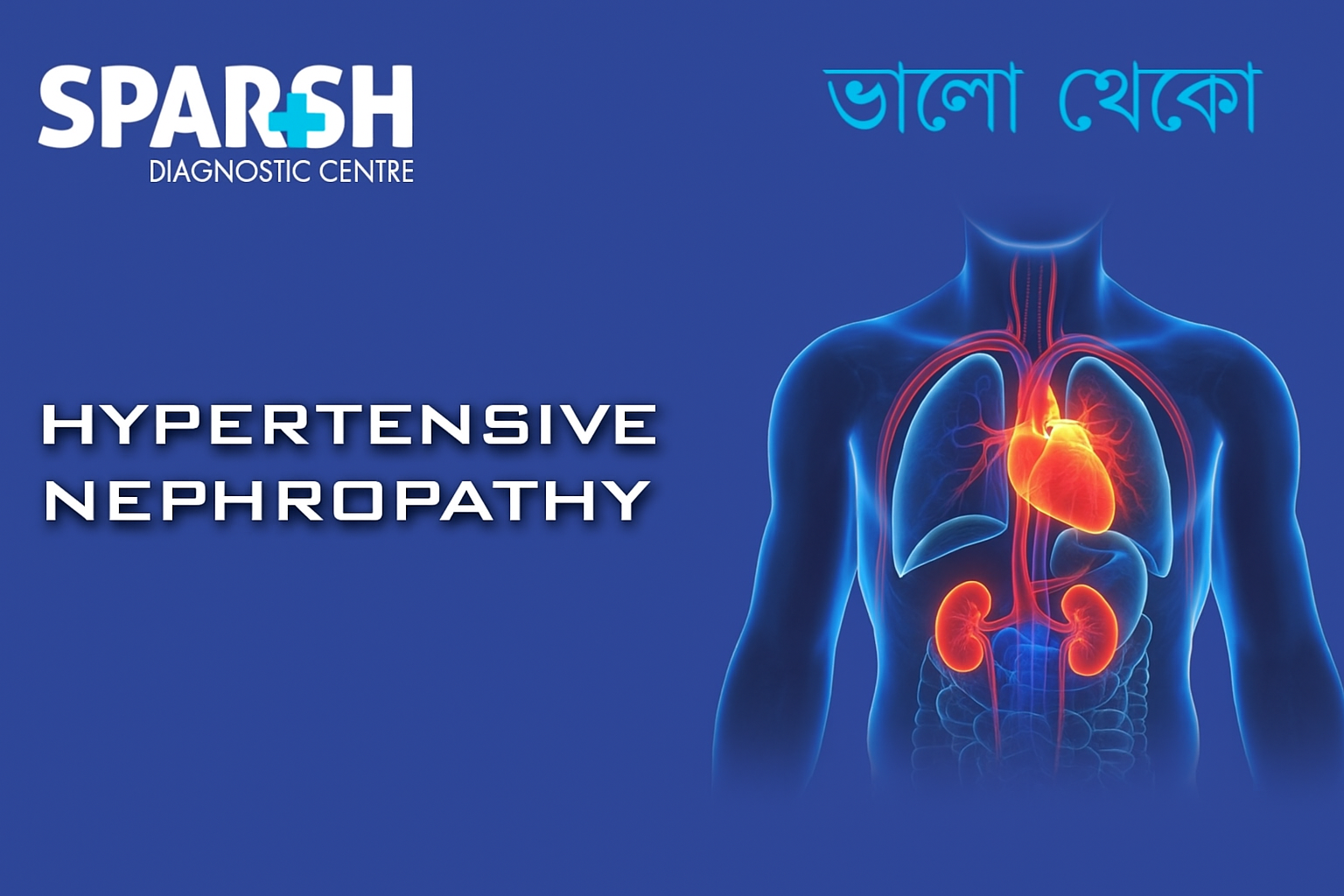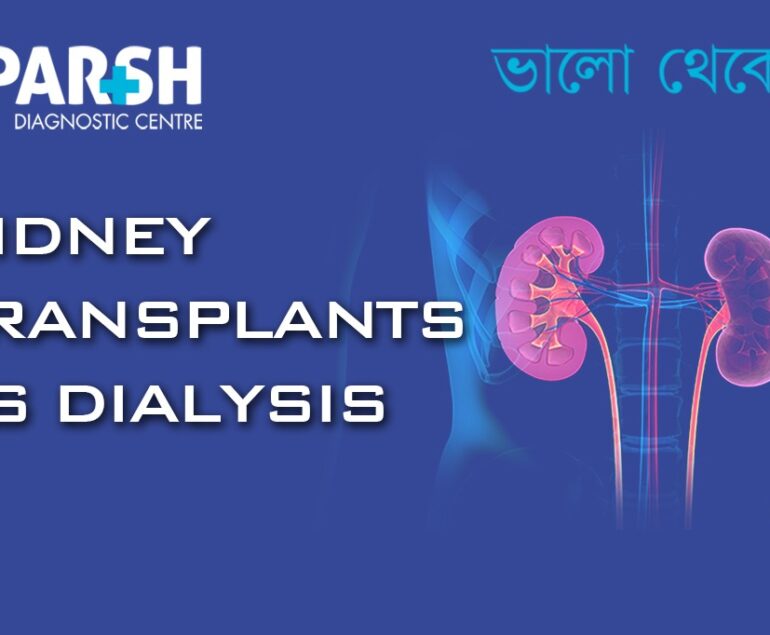High blood pressure, or hypertension, is often called the “silent killer” because it can damage vital organs without noticeable symptoms for years. One of the most serious complications of long-term uncontrolled hypertension is hypertensive nephropathy, also known as hypertensive kidney disease.
This condition occurs when high blood pressure gradually damages the blood vessels in the kidneys, reducing their ability to filter waste and maintain fluid balance. If left untreated, hypertensive nephropathy can lead to chronic kidney disease (CKD) or even end-stage renal disease (ESRD), requiring dialysis or kidney transplantation.
In this comprehensive guide, we’ll discuss the causes, risk factors, symptoms, diagnosis, treatment, and prevention of hypertensive nephropathy.
What is Hypertensive Nephropathy?
Hypertensive nephropathy refers to kidney damage caused directly by chronic high blood pressure. When blood pressure is consistently elevated, it puts excessive force on the delicate blood vessels (glomeruli) in the kidneys. Over time, this pressure damages the vessels, reducing their ability to filter blood effectively.
The kidneys play a vital role in regulating blood pressure by balancing fluid and electrolyte levels. When hypertension damages them, a vicious cycle occurs — damaged kidneys cause further blood pressure elevation, which in turn worsens kidney damage.
Causes of Hypertensive Nephropathy
The primary cause is long-standing uncontrolled hypertension, which can result from various underlying factors, including:
Essential (Primary) Hypertension – High blood pressure without a known secondary cause, often related to genetics, lifestyle, and age.
Secondary Hypertension – High blood pressure caused by conditions such as:
Hormonal disorders (e.g., hyperaldosteronism, Cushing’s syndrome)
Certain medications (e.g., steroids, birth control pills)
Atherosclerosis – Hardening of arteries, reducing kidney blood flow.
Genetic Predisposition – Family history of hypertension or kidney disease.
Risk Factors
Certain factors increase the likelihood of developing hypertensive nephropathy:
Poorly controlled high blood pressure
Family history of kidney disease
Older age
High-salt diet
African or Asian ethnicity (higher prevalence)
Symptoms of Hypertensive Nephropathy
In the early stages, hypertensive nephropathy often has no noticeable symptoms. This is why regular blood pressure and kidney function monitoring is essential. As the condition progresses, symptoms may include:
Confusion (in advanced stages due to toxin buildup)
Uncontrolled high blood pressure despite medication
How Hypertension Damages the Kidneys
The kidneys contain millions of tiny filtering units called glomeruli. These structures rely on small blood vessels to deliver oxygen and nutrients. Chronic high blood pressure causes:
Thickening and narrowing of renal arteries
Reduced blood flow to the kidneys
Damage to glomeruli, leading to protein leakage
Gradual loss of filtration ability
Progression to chronic kidney disease
Stages of Hypertensive Nephropathy
Hypertensive nephropathy typically progresses through the stages of chronic kidney disease (CKD):
Stage 1: Kidney damage with normal function (eGFR ≥ 90 mL/min)
Stage 2: Mild loss of function (eGFR 60–89 mL/min)
Stage 3: Moderate loss (eGFR 30–59 mL/min)
Stage 4: Severe loss (eGFR 15–29 mL/min)
Stage 5: Kidney failure (eGFR < 15 mL/min)
Diagnosis
Diagnosis involves assessing both blood pressure control and kidney function. Common tests include:
1. Medical History & Physical Examination
Review of hypertension duration and severity
Checking for swelling, high BP readings
2. Blood Tests
Serum creatinine – Elevated in kidney damage
Blood urea nitrogen (BUN)
Estimated glomerular filtration rate (eGFR)
3. Urine Tests
Urinalysis – Detects proteinuria or hematuria
Albumin-to-creatinine ratio (ACR)
4. Imaging Tests
Ultrasound – Detects kidney size and structure changes
Doppler ultrasound – Evaluates blood flow
5. Kidney Biopsy (in certain cases)
Confirms damage pattern and rules out other causes
Treatment of Hypertensive Nephropathy
The main goal is to control blood pressure and slow kidney damage progression.
1. Blood Pressure Control
Target BP: Usually below 130/80 mmHg (individualized)
Medications:
ACE inhibitors (e.g., enalapril, lisinopril) – protect kidneys
ARBs (e.g., losartan, valsartan) – alternative to ACE inhibitors
Diuretics – reduce fluid overload
Calcium channel blockers
Beta-blockers (in some cases)
2. Lifestyle Modifications
Reduce salt intake (< 2g sodium/day)
Eat a kidney-friendly diet (low sodium, adequate protein, high in fruits and vegetables)
Maintain healthy weight
3. Treat Underlying Conditions
Control diabetes
Address sleep apnea
4. Advanced Stages
Complications of Hypertensive Nephropathy
If untreated, hypertensive nephropathy can lead to:
End-stage renal disease
Prevention
Regular blood pressure monitoring
Early hypertension management
Healthy diet and active lifestyle
Annual kidney function tests if at risk
Avoid overuse of NSAIDs and nephrotoxic drugs
Living with Hypertensive Nephropathy
Managing hypertensive nephropathy requires commitment to:
Taking medications regularly
Keeping follow-up appointments
Tracking blood pressure at home
Following a kidney-safe diet
FAQ Section
1. Can hypertensive nephropathy be reversed?
No, the damage is usually permanent, but with early diagnosis and good blood pressure control, its progression can be slowed.
2. How fast does hypertensive nephropathy progress?
Progression varies. Poorly controlled hypertension can cause rapid decline, while well-managed BP may slow progression for many years.
3. Is hypertensive nephropathy the same as chronic kidney disease?
Hypertensive nephropathy is one cause of CKD. Other causes include diabetes, glomerulonephritis, and polycystic kidney disease.
4. What foods should I avoid?
Limit salty foods, processed meats, pickles, instant noodles, fried snacks, and foods high in potassium or phosphorus if kidney function is low.
5. What is the best blood pressure medicine for kidney protection?
ACE inhibitors and ARBs are often preferred as they lower BP and protect kidney function.
6. Can I prevent hypertensive nephropathy if I already have high BP?
Yes, controlling blood pressure, eating a healthy diet, and regular kidney checkups can prevent or delay kidney damage.
Key Takeaways
Hypertensive nephropathy is a serious but preventable complication of long-term uncontrolled high blood pressure.
Early diagnosis through regular BP and kidney function checks is crucial.
Lifestyle changes and appropriate medications can significantly slow disease progression.
Managing associated conditions like diabetes and high cholesterol further protects kidney health.
#BhaloTheko
Disclaimer:
No content on this site, regardless of date, should ever be used as a substitute for direct medical advice from your doctor or other qualified clinician.

![]()





